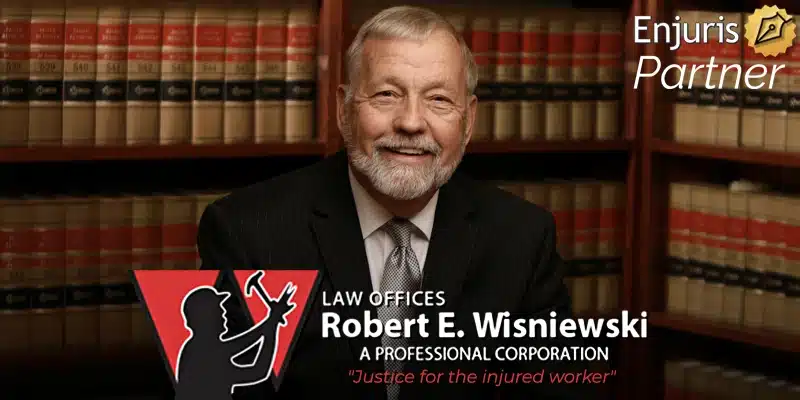Find out if you can receive compensation for developing PTSD or emotional distress after an accident
If you’re injured as a result of someone else’s negligence, you can recover medical expenses and lost wages. In addition, you can receive compensation for your pain and suffering. Sometimes, the mental anguish you suffer as a result of the conduct is so severe that it rises to the level of a post-traumatic stress disorder (PTSD).
PTSD is a psychiatric disorder that can occur in people who have experienced a particularly traumatic event. Symptoms may include flashbacks, nightmares, and severe anxiety.
Let’s take a closer look at how PTSD impacts a personal injury claim in Arizona.
Statistics on traumatic stress
An estimated 70% of people have experienced a traumatic event at least 1 time in their lives and up to 20% of these people develop PTSD.
Other alarming facts about PTSD include:
- Approximately 5% of people in the United States have PTSD at any given time
- Approximately 8% of adults will develop PTSD during their lifetime
- Women are roughly 2 times as likely as men to develop PTSD
Symptoms and diagnosis of PTSD
According to the American Psychiatric Association, symptoms of PTSD fall into 4 categories. The specific symptoms in each category can vary in severity.
- Intrusive thoughts, such as repeated and involuntary flashbacks or dreams. These flashbacks and dreams can be so severe that the victim feels as though they’re re-living the traumatic event.
- Avoiding reminders of the traumatic event. For example, a traumatic car accident might cause a person to avoid driving or riding in a car.
- Negative thoughts and feelings that might include distorted thoughts about the victim (e.g., “I am bad” or “it’s all my fault”). Such thoughts can cause the victim to become detached or estranged from others.
- Reactive symptoms, including irritability, angry outbursts, reckless or self-destructive behavior, and problems concentrating or sleeping.
It’s common for victims to experience some or all of the above symptoms in the days following an accident. However, to be diagnosed with PTSD, symptoms must persist for more than a month and generally persist for several months and sometimes years.
In addition, for people to be diagnosed with PTSD, the symptoms must cause significant distress or affect daily functioning.
Can I sue for this type of injury?
If you’ve suffered PTSD as a result of an accident or injury, you may be able to get compensation for the disorder as part of a personal injury lawsuit or an injury-related insurance claim in Arizona.
Negligence lawsuits based on PTSD
If you’ve suffered PTSD as a result of an accident caused by another person or entity’s carelessness, you may be able to recover damages by filing a negligence lawsuit.
In Arizona, you must prove 3 elements to establish negligence:
- Duty. You must prove that the other person or entity owed you a duty of care.
- Breach. You must prove that the other person or entity breached that duty (in most cases, this means the person or entity failed to behave as a reasonable person would under the circumstances).
- Damages and causation. You must prove that the damages you sustained were caused by the other person or entity’s breach. In other words, but for the actions of the person or entity, you wouldn’t have suffered PTSD.
Negligence cases that involve PTSD may include:
- Drowning accidents
- Defective products
- Medical malpractice
- Car accidents
- Pedestrian accidents
- Bicycling accidents
- Motorcycle accidents
Workers’ compensation claims based on PTSD
If you suffered PTSD as a result of a workplace accident, you may be able to file a workers’ compensation claim.
Workers’ compensation is a form of insurance that pays medical expenses and lost wages to employees who are injured while doing their job.
Generally, mental illnesses aren’t covered by workers’ compensation insurance. However, in Arizona, PTSD is covered so long as the victim can show that “some unexpected, unusual or extraordinary stress related to the employment” caused the PTSD. For example, first responders who suffer PTSD may qualify for workers’ compensation.
The reality is that receiving workers’ compensation benefits for PTSD is an uphill battle. Insurance companies are often skeptical of mental illness claims — in part, because these injuries cannot be “observed” like a broken bone or lost limb.
To successfully recover the compensation you deserve, it’s important to find an experienced workers’ compensation attorney as soon as possible so that you and your attorney can start gathering evidence and preparing your claim.
What damages can be recovered?
In a personal injury lawsuit based on PTSD, you’re entitled to compensation from the person or entity legally responsible for your injuries. The legal term for this compensation is “damages.”
In Arizona, there are three basic types of damages available in a personal injury lawsuit based on PTSD:
- Economic damages (sometimes called “special damages”)
- Non-economic damages (sometimes called “general damages”)
- Punitive damages
Let’s take a closer look at each of these.
Economic damages are intended to compensate you for the monetary losses associated with your PTSD. These losses might include:
- Medical expenses
- Lost income due to missing work
- Any other out-of-pocket expenses you incurred due to your injury
Non-economic damages are designed to compensate you for the non-monetary consequences of your injury. For example, the subjective pain and suffering that you experience as a result of your injury. General damages vary from case to case, but common examples include:
- Physical pain and suffering
- Emotional distress
- Loss of consortium
Punitive damages are generally not awarded in personal injury cases. In Arizona, punitive damages are only available if the defendant’s conduct was:
- Grossly negligent: conduct that’s extreme or reckless as opposed to careless or unreasonable, or
- Willful and wanton: conduct that’s intended to cause harm
In the case of a workers’ compensation claim, you can recover medical expenses and income replacement benefits. In general, all reasonable and necessary medical treatment will be covered. As for income replacement benefits, the amount you receive will depend on the severity of your injury.
Notably, punitive damages are NOT available in an Arizona workers’ compensation claim.
What if I’m partially at fault?
Arizona follows the pure comparative fault theory. Under this theory, the amount of damages a plaintiff can recover is reduced by a percentage that reflects their own degree of fault – no matter what that percentage may be.
PTSD resources
PTSD can significantly impact your day-to-day life. Additional support is available in Arizona and we encourage you to contact these organization to help you on your long road to recovery.
- Trauma and PTSD Treatment Center in Tucson
- Oasis Behavioral Health Hospital
- Sonora Behavioral Health Hospital
- National Center for Post Traumatic Stress Disorder
- Suicide Prevention Lifeline
In addition, we encourage you to consult a personal injury or workers’ compensation attorney near you if you have questions about your legal options and right to compensation.
See our guide Choosing a personal injury attorney.


